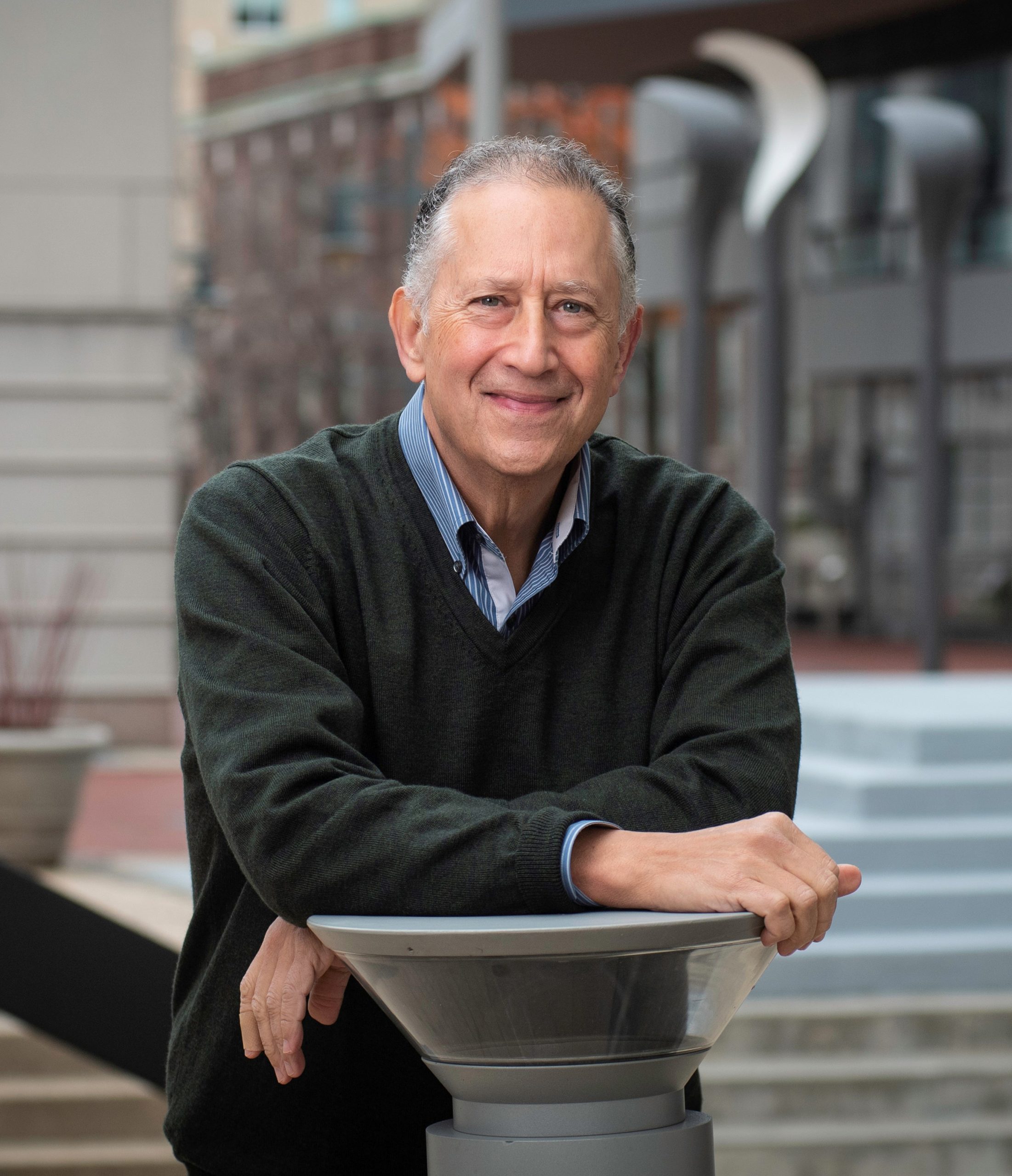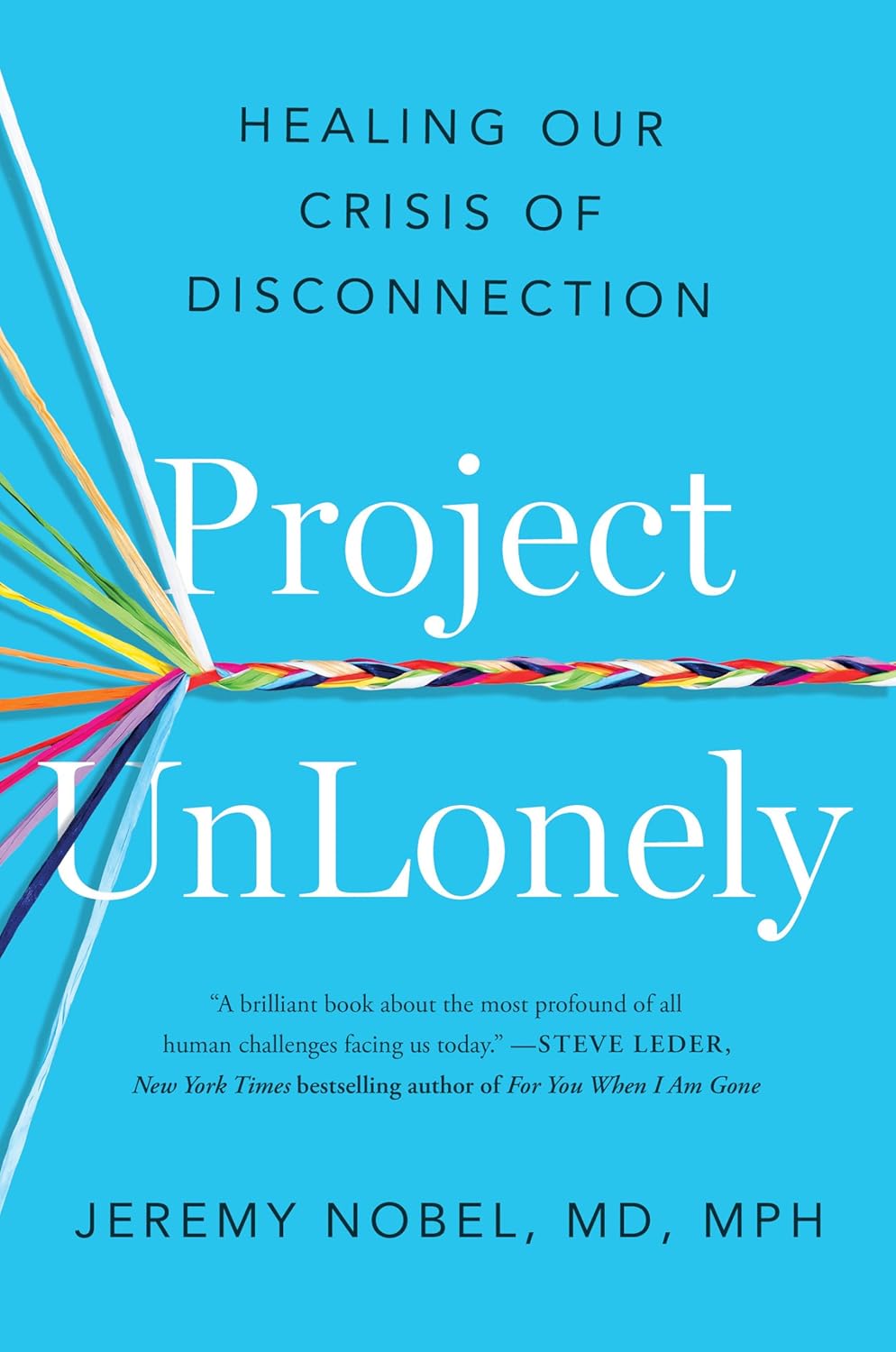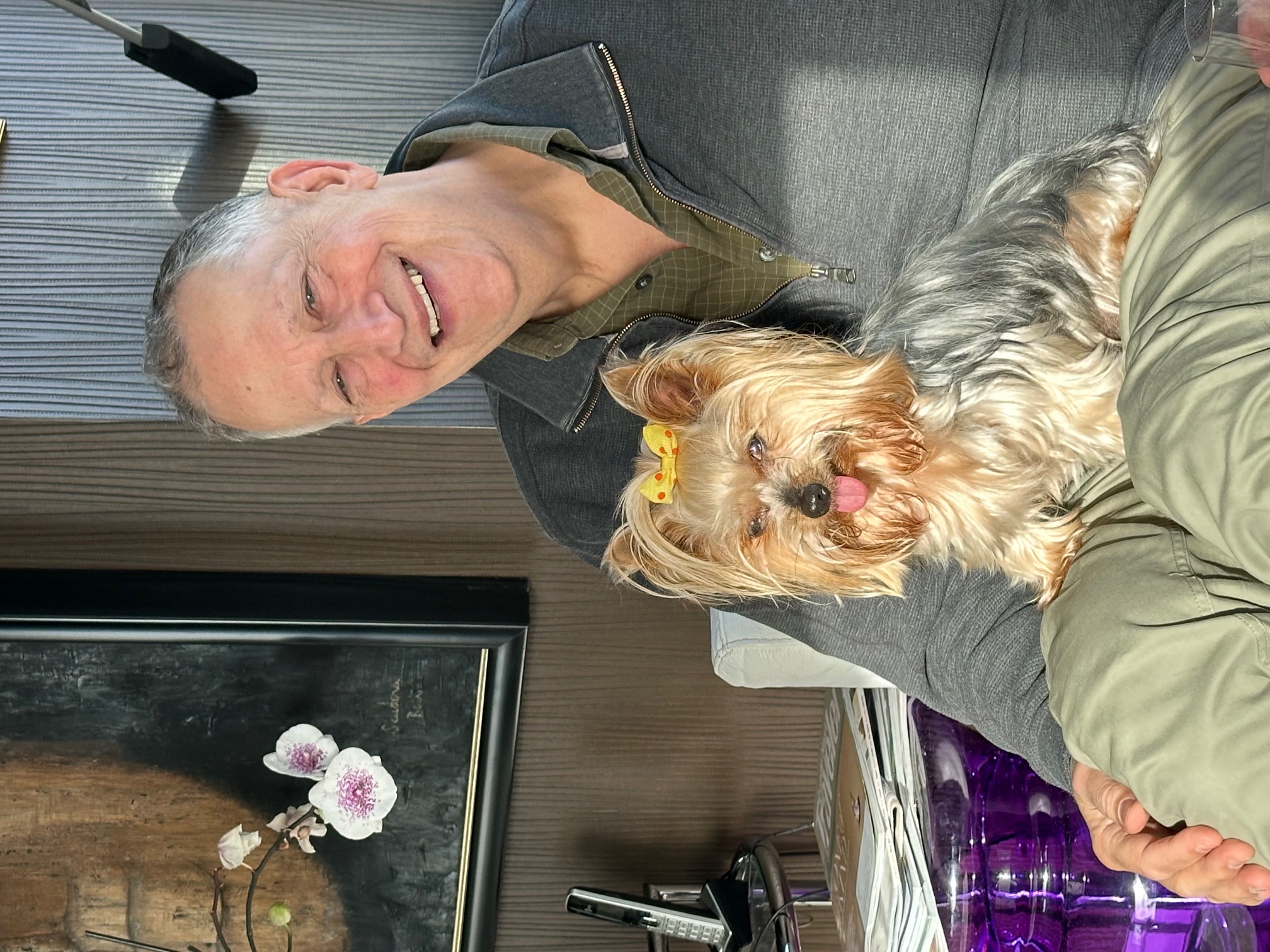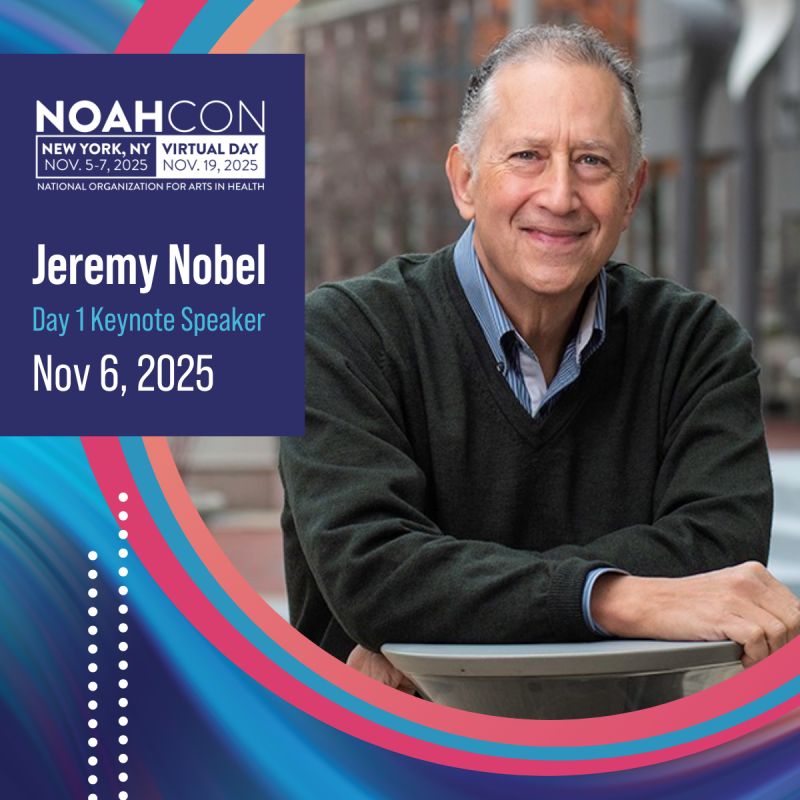
In the short film 1.2 Million, a young postman named Mark forms an unexpected bond with Mary, an elderly woman living alone. After intercepting a cold, distant letter from her estranged son, Mark rewrites it to offer her comfort — a small act of kindness that slowly grows into a meaningful connection. As their relationship deepens, the film gently exposes the emotional cost of aging in isolation, and how even brief, compassionate interactions can bring dignity and joy to those who are often overlooked.
The film is featured by Project UnLonely Films, the pioneering work of Jeremy Nobel, MD, MPH, founder of The Foundation for Art and Healing, (FAH), author of Project UnLonely, and long-time faculty member at Harvard Medical School and the Harvard Chan School of Public Health. It offers a roadmap to make connections, using creative expression as a means to communicate. The film speaks volumes about the growing public health crisis, as millions of older adults experience chronic isolation. Around the globe, one in four people -- which translates into more than a billion people -- feel lonely.
“Loneliness just doesn’t make you feel miserable,” says Dr. Nobel, a primary care physician, public health practitioner and award-winning poet. “It can kill you.”
Dr. Nobel and his team offer a “social prescription” to help counteract the epidemic of loneliness. Which can lead to significant health consequences including a greater risk of cardiovascular disease, dementia, stroke, depression, anxiety and premature death. A 2023 national poll on healthy aging from the University of Michigan found that about 37% of older adults aged 50 to 80 years experienced loneliness and 34% reported feeling socially isolated. Social psychologist Geoffrey Cohen writes that the highest rates of loneliness are currently being seen in 18-24-year-olds in his book, "Belonging: The Science of Creating Connections and Bridging Divides."
One of the biggest burdens faced by individuals including many returning to civilian life after military service, those facing the trauma of divorce, job-loss or climate crisis such as the wildfires in LA, is loneliness and isolation.
But there is hope says Dr. Nobel.
Creative Expression as Medicine
A poet and photographer, he created FAH in 2004 with the mission to explore, celebrate and deliver creative expression as a path to health and well-being.
One of the unique characteristics of the arts is their ability to “engage and connect us,” he says. Consequently, community-based arts activities of various sorts—theater, dance, visual arts and expressive writing—work as an important “antidote” to loneliness and isolation. This is significant and timely from both a humanistic and public health perspective.
”Loneliness assumes many forms, from loss of meaningful human contact because of physical isolation to feeling rejected because of difference,” adds Dr. Nobel.
Project UnLonely was designed with three goals: to raise awareness of loneliness and its negative physical and mental health effects, to destigmatize loneliness, and to design, test and offer community-based programs that empower individuals and communities to connect through the arts.
The Science of Creativity: Curiosity, Creative Expression and Conversation
Research shows that making art or even viewing the work of other people reduces levels of the stress hormone cortisol. It also increases levels of the feel-good hormones, including dopamine, endorphins and oxytocin.
"So, at a baseline, what the arts do is they relax you and put you in a good mood," Nobel says, “which can help create an inviting vibe to connect with others. But the arts do more than that, activating the parts of our brains that make sense of the world around us, making the world and the people in in it seem less threatening and easier to engage with.”
This growing body of research demonstrates that creative expression and the arts offer the unparalleled ability to meet this moment and unite people. which can include music, painting, drawing and beyond – Nobel says the options are endless. "Culinary arts is a big one," he says. “Many people find creative expression through cooking and baking. There are also textile arts such as knitting, crocheting or quilting and other decorative arts like ceramics, glassware, jewelry, and metalwork, not to mention gardening and flower arranging.”
Through its CreativityHub, the foundation employs evidence-based strategies, to help communities cultivate and offer public health programs that use creativity and connection to improve health outlooks and outcomes. Creativity cards are designed to spark creativity and connection through 12 fun activities that range from finding walking buddies and writing six-word poems to building a gratitude tree and staging a dance party.
Lights, Camera, Action
Now in its ninth season, Project UnLonely Films is one of the foundation’s most engageable programs. It has supported people struggling with loneliness by celebrating the connecting power of film-based storytelling. With over 150 short films, free access to these award-winning, short films increase awareness of this major health concern and helps viewers feel less alone. A new season is launched each June with an event that convenes art, health, media, and policy luminaries to explore effective and sustainable solutions for communities.
Dubbed “the Netflix of loneliness,” some of the films are Kleenex mandatory, all are thought-provoking and many put a smile on your face.
Proving that laughter and tears can be the best medicine, and a spiritual connection to what matters most, the film Confessions, features two nuns, Sister Mary and Sister Alva. When the third member of their trio passes away the nuns are inspired to share their own fears about death, and they decide to go on a day filled with adventure. (Think Thelma & Louise of the nunnery.) Charming and sweet, Sister Alva announces that the passing of their fellow sister is causing tummy issues. To which Sister Mary asks if she has sipped her probiotic yogurt drink. “No, it’s a different kind of pain,” responds Sister Alva. “Have I told you I’d like to go in my sleep?” “As do I,” says her buddy. Together they embark on a one-day adventure. Their transparency culminates in gratitude as they realize, and share with each other, how fortunate they are to have been companions for each other throughout their adult lives in the church.

All the Lonely People: You Do Belong
Dr. Nobel dedicates his book to “All of us who blame ourselves for being lonely.” In other words, everyone. One of his resounding messages is that loneliness “is not your fault. You are not alone.” He hopes to destigmatize our loneliness and make sense of it for us all, identifying it as part of the human experience and a natural signal that we are in need of connection.
It is time to change the cultural narrative around loneliness, he says.
“We need to reframe loneliness in our society from something that is shame-filled to focus on how it is actually a biological condition, a survival signal,” he says. “I want people to know they don’t have to be embarrassed if they feel lonely. We’re not embarrassed if we are thirsty.”
The good news, he says, is that “sharing our unique self with others invites them to share their unique self with us in return, offering a rewarding celebration of our common humanity.”
To jumpstart creativity, Dr. Nobel says start by being curious and exploring what excites or motivates you, as self-awareness helps lay the foundation for authentic connections. Create something tangible—whether a doodle, casserole, or bouquet—that reflects your feelings and imagination. Take risks by sharing a bit of yourself in conversations, using what you've made as a starting point. Finally, seek out groups or communities that align with your interests to foster connection and inspiration.
Dr. Nobel’s Personal Experience
Tapping into his inner poet goes back to his high school and college years when he began coping with his own loneliness and grief after loss of key individuals in his life.
 But his commitment to exploring the healing power of art came to the forefront and was shaped by the emotional aftermath of the September 11 attacks. As a physician and public health expert, Dr, Nobel says he saw the psychological toll the tragedy took—especially on children—and recognized the usefulness of creative outlets to process trauma.
But his commitment to exploring the healing power of art came to the forefront and was shaped by the emotional aftermath of the September 11 attacks. As a physician and public health expert, Dr, Nobel says he saw the psychological toll the tragedy took—especially on children—and recognized the usefulness of creative outlets to process trauma.
This led him to found the Foundation for Art & Healing (FAH), grounded in the belief that while individuals can't control traumatic events, they can influence how they respond and recover. Dr. Nobel drew inspiration from studies at the time that showed where traditional talk therapy often fell short, creative activities like drawing and collage helped children express emotions they couldn’t verbalize, offering a path from trauma to resilience.
The transformational impact of this kind of creative expression became even clearer to Nobel, through an exhibition of children's art from 9/11, displayed at the Museum of the City of New York on the first anniversary of the attacks. . That work is still viewable today included in exhibits like The Day Our World Changed: Children’s Art of 9/11. For Dr. Nobel, this affirmed that art could both bear witness to pain and serve as a source of hope. It also underscored the communal dimension of healing through creative expression.
Today, FAH continues to expand access to creative tools for emotional recovery, addressing not just the aftermath of terrorism, natural disasters and everyday violence, but also the loneliness of aging, major illness, and societal exclusion because of difference, —firmly rooting Dr. Nobel’s life work in the intersection of art, healing, and human resilience.
What's Next? NOAHCON and a Fetching Idea: Pet Workshops

At NOAHCON 2025 in New York City Dr. Nobel will deliver the keynote: “Creativity, Connection, and Health: Now and in the Future” on day one of the conference. He’ll share insights into ways that loneliness alters the brain, mind, and behaviors, identifying innovative approaches to managing it—particularly, by harnessing the power of creative expression to engage and connect. Participants will learn how arts-based experiences can improve social connectedness, mental and physical wellness, and quality of life. His talk will also touch on emerging digital technologies, including artificial intelligence (AI), and what they might have to offer to enhance arts and health activities. Register here.
Also on the horizon is an exciting program with broad appeal. Early in 2026, the foundation will introduce ” Pets UnLonely,” a community-based program, using creative expression to explore and enhance people’s relationships with their pets, improving their health. There will be two workshops available through the expanding network of diverse community organizations that partner with FAH, including hospitals, museums, libraries, schools, faith-based groups, senior housing, workplaces and community centers. One workshop will focus on the feelings of joy and connection that pets can offer on a daily basis, and a second on how to grieve and celebrate the life of a beloved pet who has passed.
We live in a world where many are feeling increasingly disconnected. Through his work, Dr. Nobel inspires us to ask ourselves, “What can I do to care for someone who is lonely?”
“Sometimes a quick phone call is all it takes,” Mary tells Mark, the postman from her hospital bed in the film 1.2 million.
Dr. Nobel’s Poetry
Pain Workup
Tell me
about the pain,
Is it sharp or dull?
What brings it on?
What makes it go away?
Does aspirin seem to help?
Can you tolerate greasy foods?
Does it feel a bit better after eating?
Is it worse in the morning or evening?
Does it get relieved when you lie down?
Does it come and go or is the pain constant?
Does it radiate through to your back or shoulder?
Can you put a finger on the exact spot that hurts most?
Do you wake in the morning, crowned with a halo of pain?
Do you remember a time when you remembered no pain?
Have you come to depend on the pain to keep you alive?
Do you feel like a small animal is nibbling inside you?
Does it crumple you in half when the pain comes?
When you were young did you torture animals?
Do you recall how green the grass used to be?
Were you faithful to your first lover?
Are you afraid of the dark?
Tell me about the pain,
Is it sharp or dull?
Tell me.
© Jeremy Nobel
Join Narrative Mindworks
Be part of a global community advancing the power of storytelling in healthcare, education, business, and the arts.
Whether you're a caregiver, educator, writer, or visual storyteller, narrative practices help us connect, heal, and preserve legacy. Join Narrative Mindworks to gain access to exclusive resources, share your story, and grow your impact.
Become A Member – Join Now
